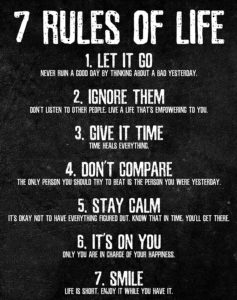
Emotions (for Engineers)
I know this is not typical, but I’d like to share with you an intensely useful metaphor that I absolutely hate. Hating it is especially difficult for me, because I made it up. It’s just not….me. But it’s wildly effective with some clients – especially the analytical, emotionally restricted, very controlled clients.
Let’s start with this: there are 6 basic human emotions. (I know, some researchers say 5, 7, or 9. Some are currently working on disputes. Of course, there are cultural, familial, and other influences. Maybe that’s a topic for another day, along with the relative absence of really good emotion lists or wheels. Today, we speak of Paul Ekman, the father of universal emotion research.)
FEAR, SADNESS, ANGER, DISGUST, JOY, INTEREST
And while I most want to write about the varieties of emotional experiencing, primary vs. secondary emotions, emotion constellations, and more, instead I’m going to tell you how I sometimes talk to people about emotions who aren’t as “into” emotions as I am. This may be because they’re truly alexithymic, because they were raised in a traditional male gender role or any of a number of cultural systems that value emotional restriction, or because they’re Vulcan. Here goes:
Think of emotions as an internal indicator about the allocation of resources in your environment. Resources could be anything – money, time, relationships, etc.
FEAR – Fear is an emotion that tells us a resource is in danger. The importance of the resource and the level of perceived danger (in intensity, closeness, and ability to deal with it) will determine whether we feel nervous (like when the resource of social status might be threatened by potentially having poor public speaking performance next week) or terrified (the resource of life/health is threatened by an oncoming 18-wheeler).
SADNESS – Sadness is the feeling we have when a resource has been lost. Again, the level of sadness we feel is determined by a few moderators like the importance of the resource (like a close family member), the irretrievability/irreplaceability (like death as opposed to a job loss), and the “realness” (e.g., we feel disappointment when we perceive a loss of something we didn’t actually have yet).
ANGER – We experience anger when resources are perceived to have been distributed unfairly. When we don’t get something that we believe that we deserve, we feel anger in response. It’s something that we can feel this as a response to someone else being unfairly resourced – an abused child being denied safety and love, the environment being destroyed through improper resource management, our kid not winning the science fair even though their project was definitely better than those other kids’.
(note: people often experience anger or something like anger as a “secondary” or “substitute” emotion when they have learned that other emotions are too painful or not acceptable to express, typically fear and/or sadness. More on this in another post, sometime.)
DISGUST – Disgust occurs when a resource is potentially threatened with corrosion or infection. This can be a physiological kind of disgust, like when we are exposed to an obviously ill person or a rotted food. It can also be when we believe our character/environment might be threatened with moral decay or infection by the presence of contemptible others.
JOY – Joy happens when we believe our resources (again, this includes all kinds of resources – money, love, status, purpose, etc.) are sufficient and safe. If we have just enough and aren’t worried, we feel contentment. We may even feel a burst of happiness or delight when we receive an unexpected resource – a winning lotto ticket or spontaneous hug. (You might prefer to use the word “happiness” for this emotion in general because you believe “joy” is tied up with purpose and meaning. Great; I support that!)
INTEREST – Interest, like all of the emotions, comes in different intensities. For example, curiosity, wonder, and awe are emotions we feel when we recognize that a resource is salient. It often combines with other emotions to tell us how salient a resource is in what way. It acts as a modifier (e.g., telling us whether something is a bit scary, pretty scary, or very scary).
It’s a work in progress, so comments below, especially if you have questions or ideas!


